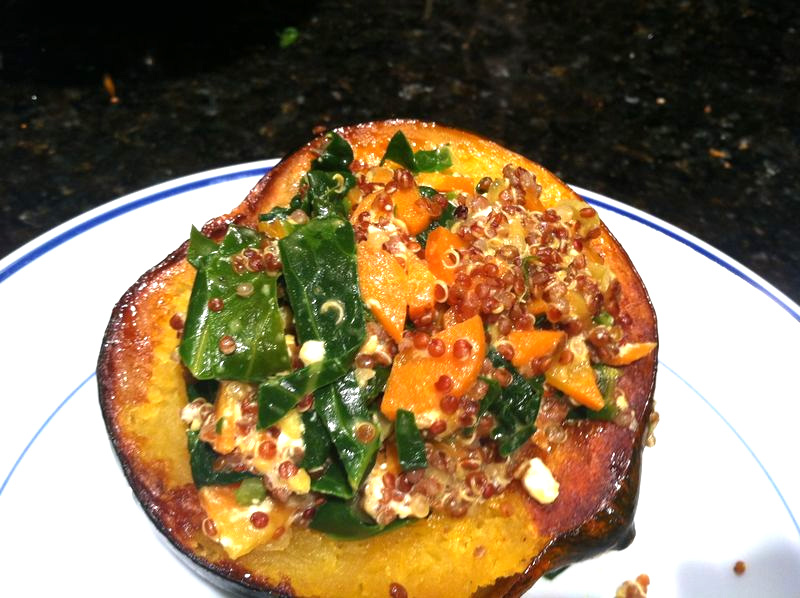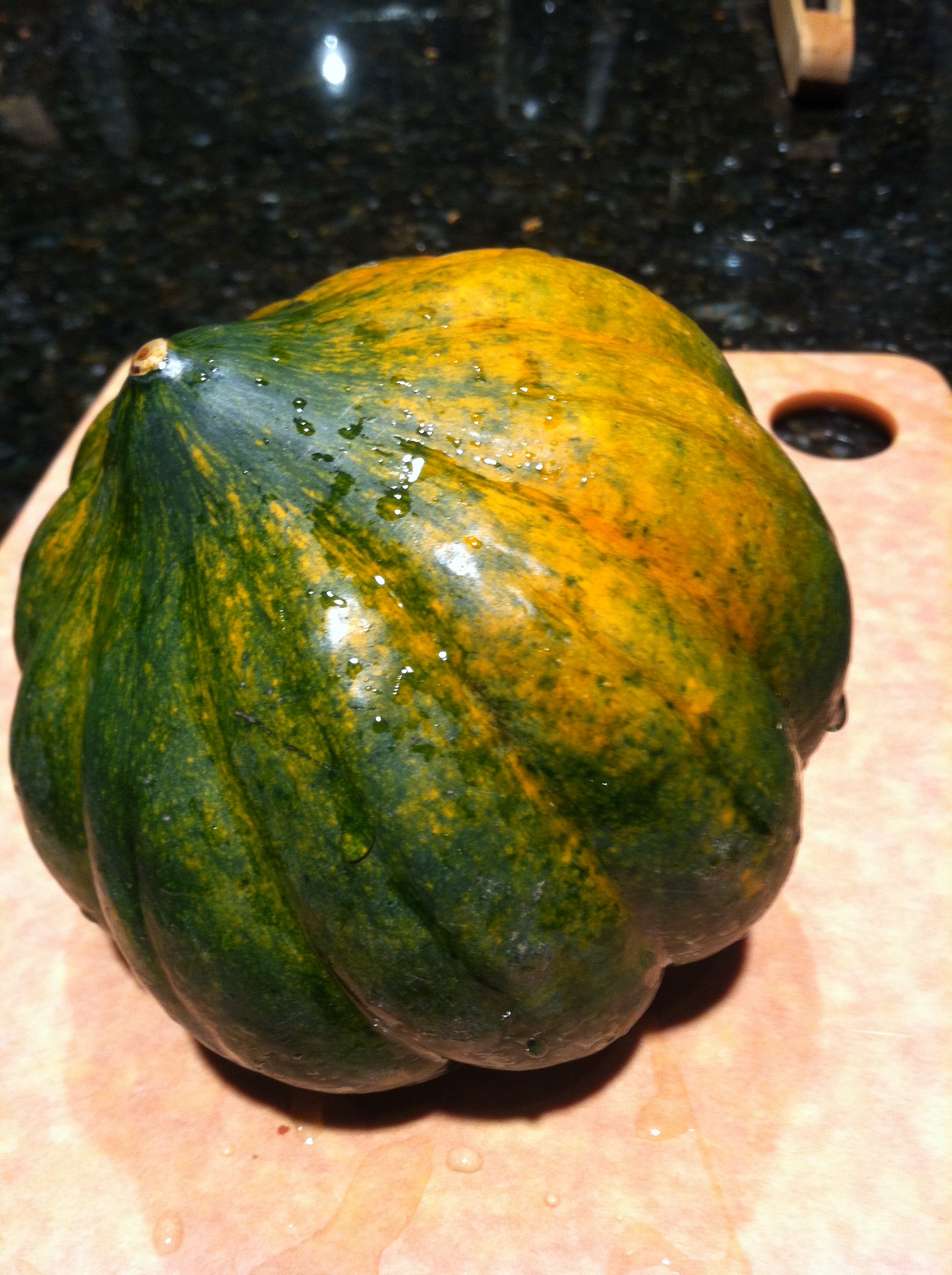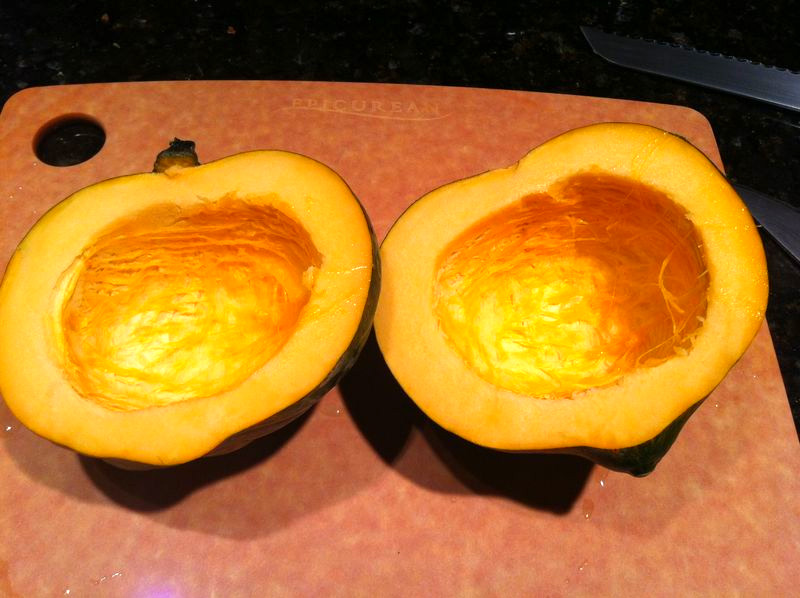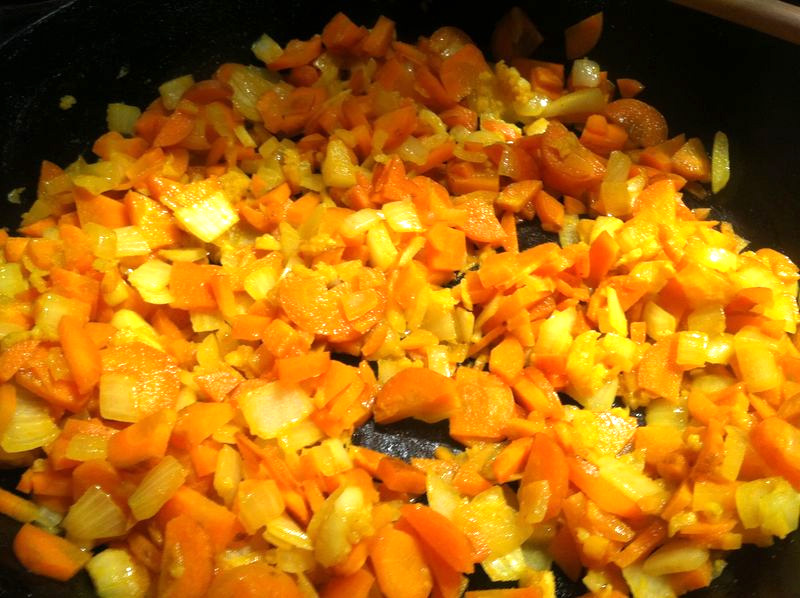Cold January nights are a perfect time to enjoy winter squash. Winter squash is actually harvested in the fall, but due to it’s thick skin it can keep for months without refrigeration. In addition to providing healthy, local food all winter long, squash sweetens as it ages (to a point) so it tastes even better after sitting for a month or so. You may remember that delicata squash is one of my top five vegetables, but I’m an equal opportunity employer and also enjoy acorn, kabocha, and butternut all winter long.
Acorn squash can be prepared many ways, but I’m partial to cutting it in half and roasting it. It is delicious just like that (and even better if you add some olive oil, butter, or maple syrup), but given its size and shape it is perfect for stuffing. Begin by slicing the squash in half and removing the seeds (I like using a serrated grapefruit spoon to scoop all the seeds and strings out). Brush the exposed flesh with olive oil or coconut oil and arrange the halves face down on a baking sheet. Bake in the oven for about 30 minutes at 350 degrees (or until the flesh has softened and the edges start to brown).
While the squash is cooking you can prepare your stuffing ingredients. I made a batch of super-grain quinoa (also a complete protein!) and sauteed carrots, onions, and garlic in olive oil, curry powder, and turmeric (anti-inflammatory spices).
When the carrots and quinoa were finished cooking, I lightly sauteed spinach (love those leafy greens!) in olive oil and combined all the ingredients in a mixing bowl. I added a sprinkle of feta cheese and salt and pepper to taste. Liberally fill each of the roasted squash halves with the stuffing and give the finished product a final drizzle of olive oil. The stuffed squash is a delicious hearty dinner and I often end up with extra filling to have for lunch the following day.

Like all vegetables with orange coloring, squash has very high levels of antioxidants and beta-carotene (which your body automatically converts to vitamin A). Beta-carotene has been identified as a deterrent against breast cancer and age-related macular degeneration. Squash also offers vitamins C, B, folate, and potassium. Low in fat, squash delivers high levels of dietary fiber, making it a heart-friendly choice.
P.S. One of my other favorite winter squash recipes is curried pear and butternut squash soup.



Looks delish Zoe….might have to whip a couple up for dinner tonight – thanks for posting!